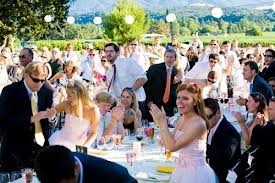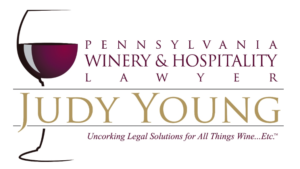Posts
PLCB Regulatory Changes Comes To Pennsylvania Limited Wineries
/0 Comments/in alcohol legislation, Pennsylvania Liquor Code /by Judy YoungEffective March 1, 2014, the Pennslyvania Liquor Control Board announced regulatory changes that affect Limited Winery Licensees around the state. The PLCB has eliminated the requirement that prohibited in state wineries from selling bottles for less than the same wine sells for at the state operated Wine and Spirit Stores. The recent change is designed to promote in-state wineries. For more read: PLCB Changes Allow Wineries To Sell Products Below The State Sell Price.
Government Shutdown Stands To Create Economic Losses for Pennsylvania Wineries
/0 Comments/in alcohol legislation, Wine News of Interest /by Judy YoungFor those of us in the wine industry, the government shutdown has brought the wine approval business to a halt. Federal approval for new wineries and/or wine labels is handled by the Federal Tobacco Tax and Trade Bureau (TTB). For purposes of the government shutdown, the TTB has been deemed non-essential. The Federal Tobacco Tax and Trade Bureau is not processing COLAs, new wine application permits, label approvals, or importation of wine in bond. Approximately 800,000 of the two million U.S. federal employees have been furloughed.
The suspension of the TTB’s regulatory functions means all reviews of alcohol beverage label permits, formulas are suspended until such time funding is reinstated. This means that many Pennsylvania wineries will not be able to sell their wines until the shutdown ends and their applications can be processed. The legal documents required to bottle and sell the wine has come to a halt, hence having severe financial impact to many of the State’s wineries.
The TTB has posted an Appropriations Lapse Notice. Once government services resume, a horrendous backlog for application processing is anticipated as we are now approaching Day 14 of the shutdown.
Protecting Your Pennsylvania Winery and Hospitality Business Summertime Event
/0 Comments/in Pennsylvania Wine Law /by Judy YoungNow that summertime is here, your Winery, Restaurant, Wine Business or Bed and Breakfast may permit  using your facility for events such as festivals, weddings, outdoor jazz concerts and other events that attract customers to your venue and promote goodwill in your community.
using your facility for events such as festivals, weddings, outdoor jazz concerts and other events that attract customers to your venue and promote goodwill in your community.
When working with event planners you’ll need to remember to have a carefully prepared Agreement that will protect your risks and liabilities for the event.
A brief look at things you’ll want to consider:
**Outline the premises and facilities that the other party participating with you will be authorize to use. You may desire to restrict certain areas of your property.
**Identify the purpose of your agreement, the parties involved, and the duration of the agreement. Allow yourself a provision that gives you the power to terminate the agreement if necessary.
**Detail the necessary payments, deposits and schedule for which they are to be paid.
**Be clear about which party is responsible for particular services and amenities (food, beverages, security, entertainment, lighting, janitorial clean-up.)
**State which party will be responsible for event permits and licensing.
**Identify who will be responsible for monitoring alchohol consumption of the guests. Make sure the alcohol servers are RAMP trained so they may prevent underage service, excessive consumption and intoxicated guests from driving.
**Allow yourself a provision to be compensated for premise damages that may be incurred during such events.
**Have your legal counsel prepare and/or review your written Agreement prior to the execution by each party.
And by all means enjoy your summertime events!
New Jersey Bars And Restaurants Under Investigation For Dishonest Alcohol Practices
/0 Comments/in New Jersey Wine Law, Wine News of Interest /by Judy YoungNew Jersey State Officials are now investigation complaints about mis-labeled drinks used to scam bar and restaurant liquor customers. Samples taken indicate that the liquor sold was not the brand ordered. Dishonest practices used to increase profits have certainly put the owner’s liquor licenses up for suspension and or revocation as per the state’s Alcohol Beverage Commission. For more on these despicable practices see:
Pennsylvania Governor Unveils Plans To Privatize State Liquor Stores
/0 Comments/in Pennsylvania Wine Law, Wine News of Interest /by Judy YoungGovernor Tom Corbett (R) is expected to unveiled his plan to privatize Pennsylvania’s state liquor stores. The Governor proposes one stop shopping by allowing consumers to purchase wine and beer at grocery stores or big box store. The plan anticipates that prices would be driven down and calls for the auctioning off of some 1200 liquor licenses and the closure of some 600 stores. The Governor’s plan would have to be approved by the State’s Legislature. For more:
View more videos at: http://nbcphiladelphia.com.
Federal Trade Commission To Study Online Alcohol Marketing To Underage Kids
/0 Comments/in Wine News of Interest /by Judy YoungThe promotion of alcohol brands through the use of internet and social media has caught the eye of the Federal Trade Commission. Wineries, brewers and distillers are under fire by critics for not doing enough to protect its underage viewers. The Federal Trade Commission, empowered to protect consumers from deceptive practices, intends to conduct a study focused on the issues related to underage exposure. For more information read Reuters: FTC Study Taking Aim At Online Marketing of Booze and Kids.
Pennsylvania Wine Shipment Legislation Gains Momentum
/0 Comments/in alcohol legislation, Pennsylvania Wine Law /by Judy YoungOn March 28, the Pennsylvania State Senate unanimously passed 48-0, Senate Bill 790 which would allow consumers to have domestic wines from U.S. wineries shipped directly to their homes in the state. Under the legislation, consumers would be allowed to purchase by phone, mail or internet as many as 24 domestic wines per month. However, for those residents interested in purchasing imported wines, Pennsylvania residents would still be required to continue to obtain imported wine purchases from the 620 state owned/controlled liquor stores.
Under the bill, consumers would be required to verify their age and sign for shipments. Wineries would be required to collect taxes prior to shipping and to pay a $100 state registration fee annually along with reporting requirements to the Pennsylvania Liquor Control Board.
Pennsylvania is one of 14 states that restricts the shipping of wine to its residents. The State’s ban on direct shipment of wine has been a long standing concern integral to the wider debate on the future of the Pennsylvania’s state-controlled liquor store system. While proponents of the bill believe the legislation offers Pennsylvania residents a bit more liquor freedom while bolstering state revenue, Senator Lawrence M. Farnese Jr. D-Philadelphia, a co-sponsor of the bill voiced his disappointment arguing that late surfacing amendments to the bill shuts out “90 percent of the world’s wine” from French, German, Australian and other imports thus “giving the people of Pennsylvania less that what they should be getting”.
The Pennsylvania Liquor Control Board is the largest purchased of wine and spirits in the United States with sales topping $1.9 billion.
Is Your Pennsylvania Wine Ready To Take Flight?
/0 Comments/in Wine News of Interest /by Judy YoungDoes your Pennsylvania wine have a distinct taste and flavor that will come through if sipped at 30,000 feet? Is so, the airline industry may be the place for your wine to take flight. It appears that U.S. airlines have taken note that passengers keep coming back to their airline based on the wine and champagne served in the cabin. As such, Sommeliers are now working with the airlines to choose which wines will be served. Perhaps your Pennsylvania is ready to take flight. For more on this subject take a look at the video below:
Here’s What Every Pennsylvania Liquor And Limited Winery Licensee Should Know
/2 Comments/in alcohol legislation, Pennsylvania Liquor Code /by Judy YoungPennsylvania’s Governor Corbett recently signed into law Act 11 (HB 148) which has made numerous changes to various sections of the Liquor Code. The Act made changes include adding a definition of “happy hour” and permitting retail liquor licensees to hold happy hour pricing up to four (4) hours per day and up to fourteen (14) hours per week. “Happy hour” is now defined as “the period of time during which a licensee discounts alcoholic beverages”. While the maximum period remains fourteen (14 hours per week, licensees will be able to adjust the length of their daily happy hours to take advantage of slow/busy days as long as the maximum limits are not exceeded. The hours need not be consecutive, but prohibitions against giving discounts between midnight and closing remains intact.
Three large changes have occurred for Pennsylvania’s Limited Wineries.
1) Effective immediately a limited winery can sell food for consumption on or off the main licensed premises and at its additional Board approved locations. It can also now sell wine by the glass at both its main premises and its satellite locations.
2) Effective immediately, a limited winery is now allowed to sell its alcoholic products from 9:00 am to 11:00 p.m, extending from the old 9:00 p.m. closing. The old law regarding expanded hours for the holiday period has been deleted.
3) Effective July 28, 2011, a limited winery will be able to apply for a “farmers market permit” for the sale of its product at more than one (1) famers market at any given time. The permit fee is $250.00 annually and there is no limit as to the number of days it can be used in that year. The limited winery can sell by the bottle or in case lots. All sales must occur during the standard operating hours of the farmers market. Samples must be free and cannot exceed one (1) fluid ounce per brand.
For more on the new changes to the liquor laws read: What Licensees Should Know About Act 11 of 2011.
recent post
Contact Judy Young
Judy Young
Attorney at Law
668 Stony Hill Road Suite 339
Yardley, Pennsylvania 19067
Phone: 215-240-6043
Fax: 215-493-4239
Or click here to go to our contact page.
